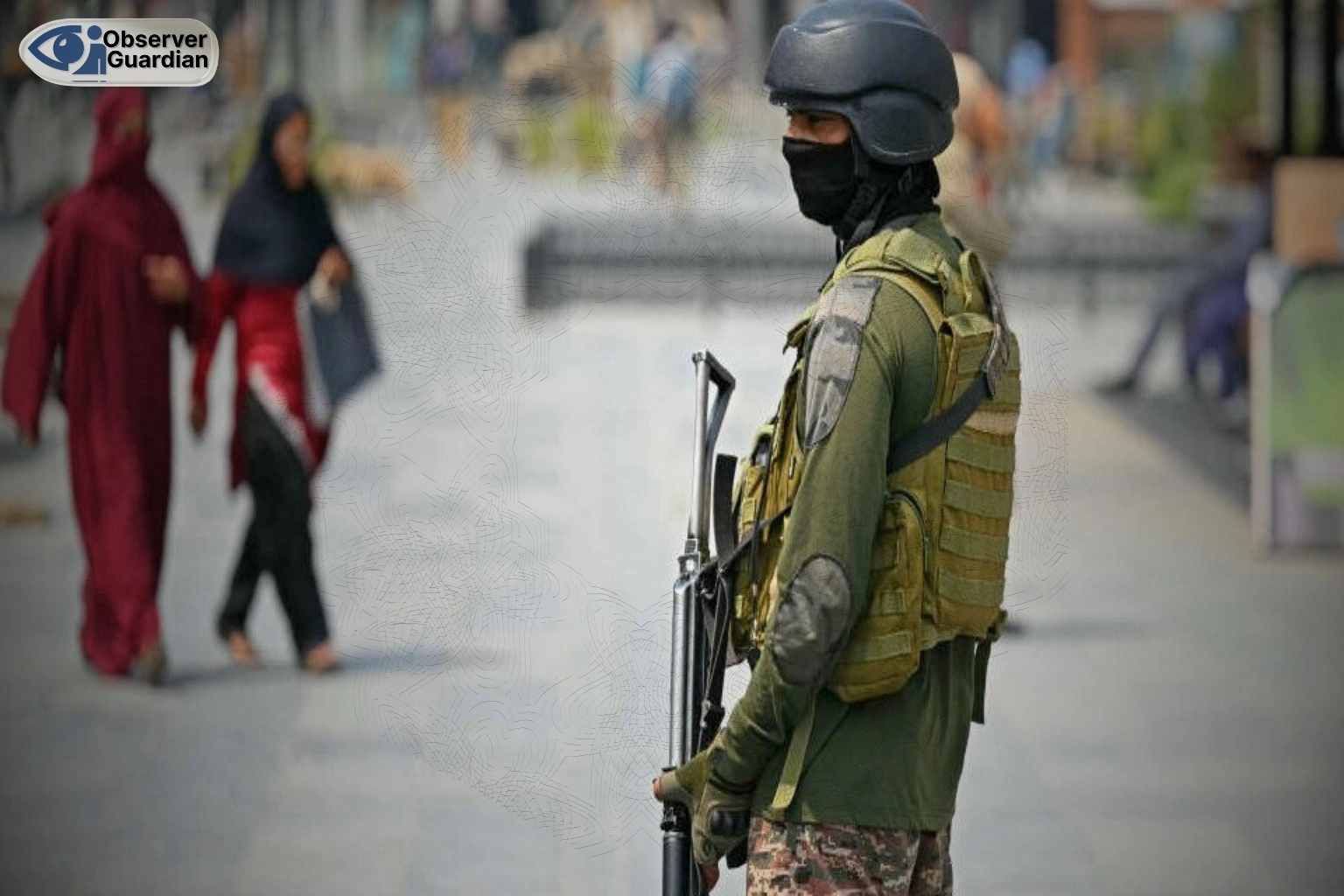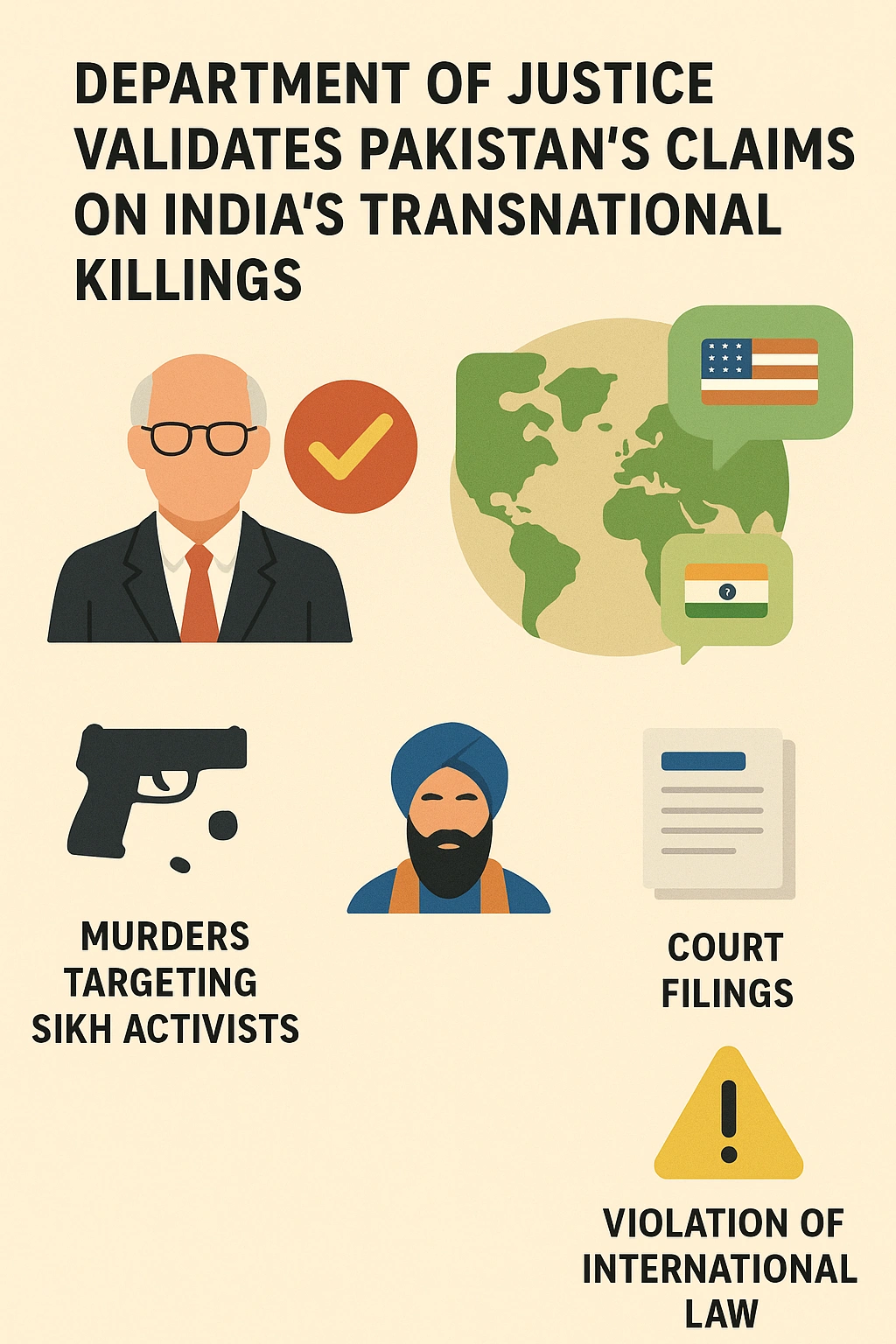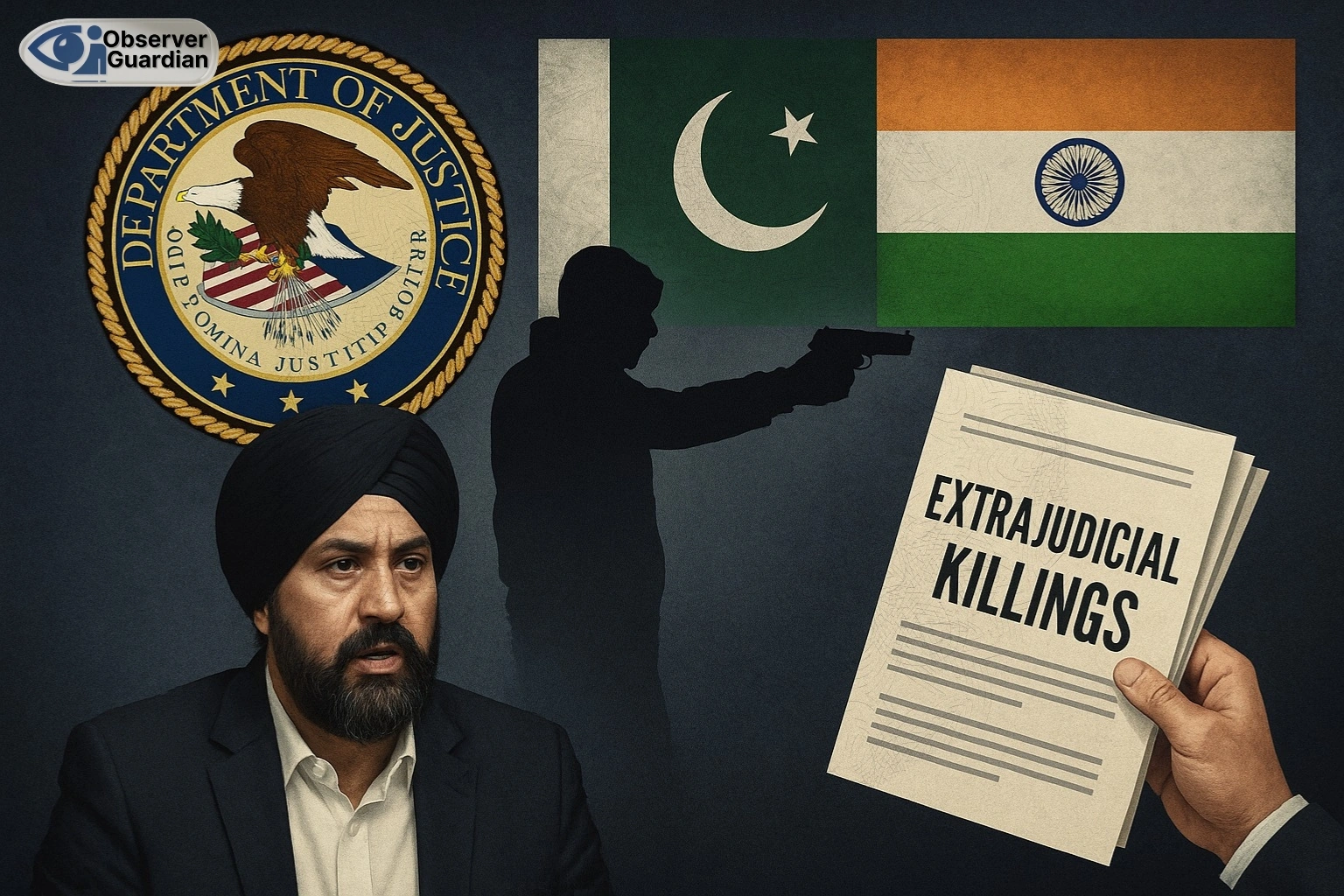The US Department of Justice (DOJ) has confirmed something Pakistan has been saying for years that India has been running extrajudicial operations abroad, targeting Sikh activists. That acknowledgment puts a harsh spotlight on state sponsored violence and raises tough questions about sovereignty, accountability, and where the international system goes from here.
What the US Found
Court documents unsealed on September 26, 2025, lay out a disturbing scheme. Prosecutors describe how Indian nationals, including Nikhil Gupta and intelligence officer Vikash Yadav, plotted to kill Gurpatwant Singh Pannun, a New York based Sikh activist. He’s long been a vocal critic of New Delhi, pushing for Sikh self-determination.
The DOJ drew a direct line between this plot and the 2023 murder of Hardeep Singh Nijjar in Canada. Taken together, it looks less like a one off and more like a pattern and it is one that stretches across borders and years. For Pakistan, which has been warning about this exact playbook, the revelations feel like a grim vindication.
How Deep It Runs
The case isn’t built on hearsay. Prosecutors presented troves of WhatsApp chats, emails, and digital records linking Indian operatives to these operations. This wasn’t a rogue side project. It looks systematic, deliberate, and coordinated as state policy.
And it’s not confined to North America. Activists in Pakistan, Nepal, and elsewhere have long reported being surveilled or threatened. With this US case, those claims carry more weight than ever.

Breaking International Rules
By targeting dissidents abroad, India isn’t just flouting diplomacy. It’s trampling on some of the most basic rules of international law.
- The UN Charter bars interference in other countries’ internal affairs.
- Human rights treaties protect activists and refugees.
- Global norms forbid extrajudicial killings.
Violating all three at once isn’t just reckless, it undermines the system that countries rely on to coexist without descending into open lawlessness.
What This Means for the World
The fallout could be serious. Sikh diaspora communities are not limited to the US and Canada. They’re significant in the UK, Germany, Australia, and the UAE. If India has already acted in multiple countries, who’s to say it won’t happen elsewhere?
Canada’s very public clash with India after Nijjar’s murder may just be a preview. Washington and other Western capitals now face the same dilemma: do they push back against India, a key strategic partner, or do they downplay these findings for the sake of realpolitik? Either way, trust is eroding.

Pakistan’s “Told You So” Moment
For years, Pakistan has been telling anyone who’d listen that India was crossing lines other states wouldn’t dare. Those warnings were often dismissed as political posturing. Now, with the DOJ’s findings, Islamabad has proof to point to. It strengthens its case on the world stage, though the bigger issue is what comes next for the international community.
The Bigger Picture
This isn’t just about Sikh activists or even about India and Pakistan. If one country gets away with extrajudicial killings abroad, it sets a dangerous precedent. Other governments might follow.
That’s why the DOJ’s revelations should be treated as more than just another headline. They demand a collective response: independent investigations, stronger protections for activists in exile, and clear diplomatic pressure to hold India accountable. Otherwise, the message is simple that if you’re powerful enough, you can kill your critics anywhere and pay no price.
What the DOJ uncovered feels like a turning point. It validates long ignored claims, shakes up international alliances, and forces a rethink of how seriously the world takes extrajudicial violence. Whether this moment leads to real accountability or just another round of statements and silence is still an open question.
⚠ Disclaimer
The views and opinions expressed in this article are exclusively those of the author and do not reflect the official stance, policies, or perspectives of the Platform.







